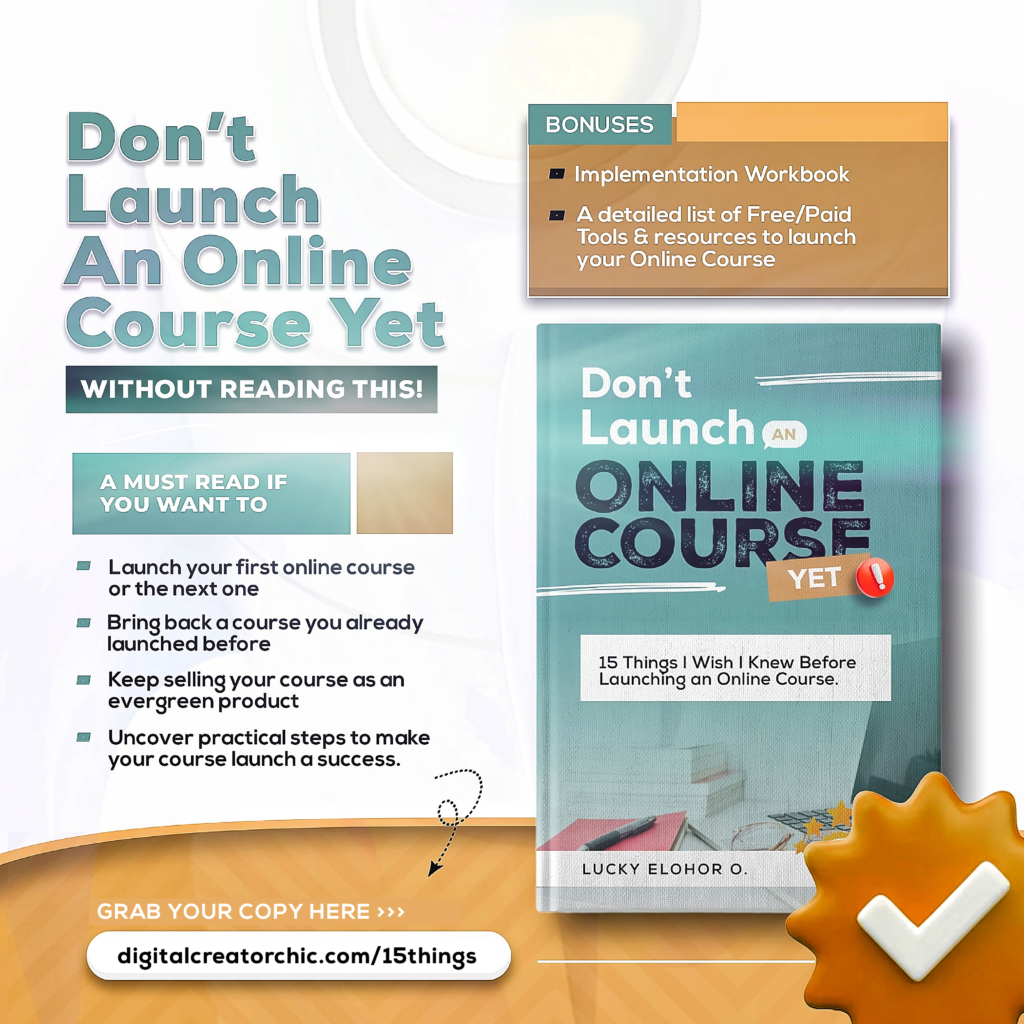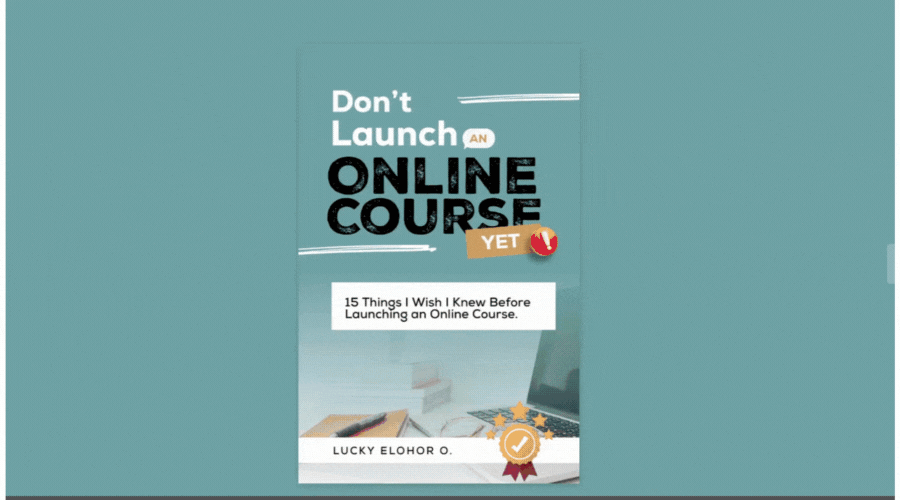Launching an online course is an exciting step towards sharing your knowledge, building authority, and generating income. However, a successful launch requires careful planning and execution. If you want to create a course that stands out and sells, you must lay a solid foundation before hitting the “publish” button.
In this blog post, I will walk you through the nine essential steps to take before launching an online course. Whether you’re a beginner or an experienced creator, these steps will help you avoid common mistakes and maximize your success.

1. Validate Your Course Idea
Before investing time and money into course creation, ensure there is demand for your topic. Conduct market research to find out if people are actively searching for solutions related to your course content.
How to validate your idea:
- Survey your audience – Ask potential students what they struggle with and if they’d pay for a solution.
- Check search trends – Use tools like Google Trends and AnswerThePublic to see what people are searching for.
- Analyze competitors – Look at existing courses in your niche. If people are buying them, it’s a good sign your course idea has potential.
2. Define Your Target Audience
A successful online course speaks directly to a specific audience. Define who your ideal students are and tailor your content to meet their needs.
Key questions to answer:
- Who will benefit the most from your course?
- What problems do they face?
- What transformation will they achieve by the end of the course?
Creating a customer persona will help you craft a course that resonates with the right people.
3. Outline Your Course Content
Having a clear course structure makes the creation process smoother. Break your content into modules and lessons, ensuring a logical flow.
Steps to create your outline:
- Identify the core topics your course will cover.
- Break each topic into smaller lessons.
- Determine the best format for each lesson (video, text, quizzes, worksheets, etc.).
- Create a roadmap for student progress.
4. Choose the Right Course Platform
The platform you choose can make or break your online course experience. There are many platforms available, each with unique features.
Popular online course platforms:
- Selar– Selar allows you to buy and sell any kind of digital product or service anywhere in the world seamlessly.
- Teachable – Great for beginners with easy-to-use features.
- Thinkific – Offers a free plan with essential course-building tools.
- Kajabi – Ideal for those looking for an all-in-one solution.
- Udemy – A marketplace with built-in student traffic.
- Podia – Perfect for selling courses, memberships, and digital downloads.
5. Create High-Quality Course Content
Your course content should be engaging, informative, and valuable. The format you choose will impact the learning experience.
Tips for creating engaging content:
- Use high-quality videos – Clear audio and visuals improve the learning experience.
- Include interactive elements – Quizzes, worksheets, and community discussions boost engagement.
- Keep lessons concise – Avoid overwhelming students with lengthy content.
Use storytelling – Real-world examples make your course more relatable.
6. Set a Pricing Strategy
Pricing your online course correctly can impact your sales and profitability. Consider factors like competition, perceived value, and target audience affordability.
Pricing strategies to consider:
- Low-ticket pricing ($50 – $200) – Good for beginners or broad audiences.
- Mid-ticket pricing ($200 – $1,000) – Great for in-depth courses with strong transformation.
- High-ticket pricing ($1,000+) – Works for premium courses with coaching or mentorship.
You can also offer tiered pricing with different access levels to increase sales.
7. Develop a Marketing Plan
A great course won’t sell itself. You need a solid marketing strategy to attract students and generate sales.
Key marketing strategies:
- Email marketing – Build an email list and nurture potential buyers.
- Social media promotion – Share valuable content and engage with your audience.
- Webinars and live Q&A sessions – Educate potential students and boost credibility.
- Affiliate marketing – Partner with influencers to promote your course.
- Paid ads – Use Facebook and Google ads to drive targeted traffic.
8. Set Up a Sales Funnel
A well-structured sales funnel guides potential students from awareness to enrollment. This includes:
- Lead magnet – Offer a freebie (ebook, checklist, webinar) to capture emails.
- Email sequence – Send valuable content and nurture leads.
- Sales page – Create a compelling page highlighting the benefits of your course.
- Checkout process – Ensure seamless enrollment with secure payment options.
9. Test and Optimize Before Launching An Online Course
Before launching an online course, test every aspect to ensure a smooth experience for students.
What to test:
- Course content – Get feedback from beta testers.
- Website functionality – Ensure smooth navigation and checkout.
- Emails and automation – Verify sequences and delivery.
- Mobile responsiveness – Check if your course works well on different devices.
Optimizing before launching an online course can prevent issues and increase student satisfaction.
Final Thoughts
Launching an online course is a rewarding journey, but preparation is key. By validating your idea, defining your audience, creating high-quality content, and setting up an effective marketing strategy, you’ll increase your chances of success.
Remember, the work doesn’t stop after launching an online course. Continuously improve your content, engage with students, and refine your marketing strategies to scale your course business.
Are you ready to take the next step? Then get a copy of my ebook- 15 Things I wish i knew before launching an online course
Read More- https://digitalcreatorchic.com/15things/



